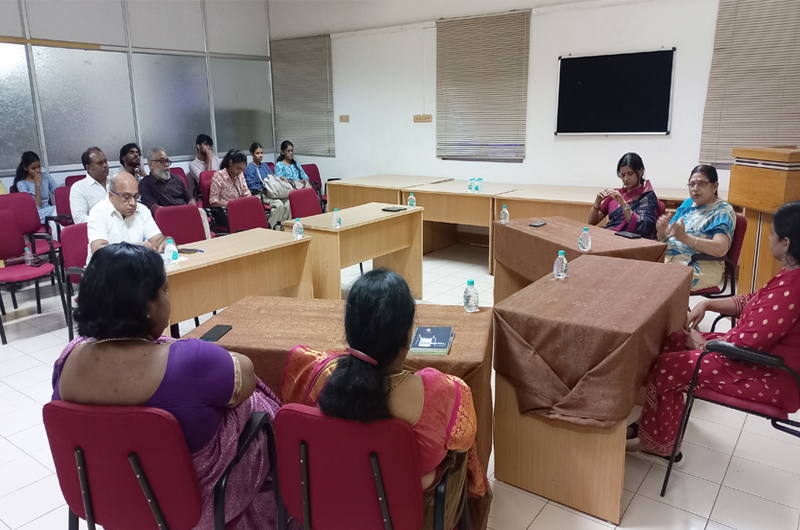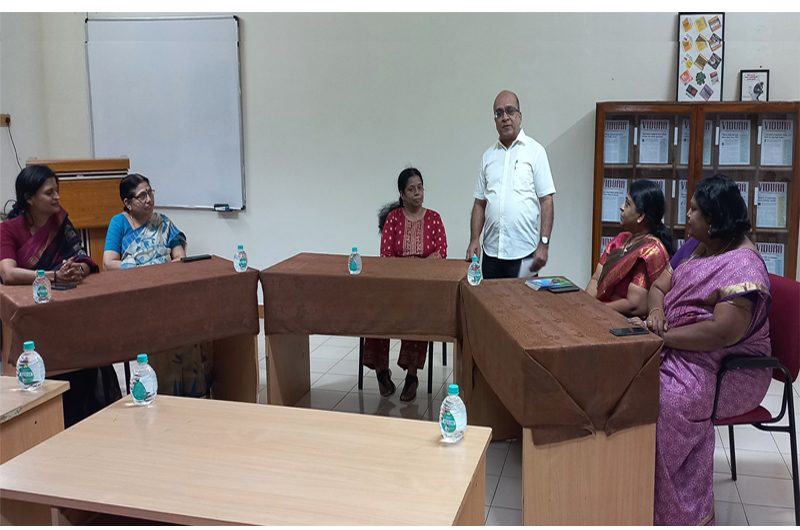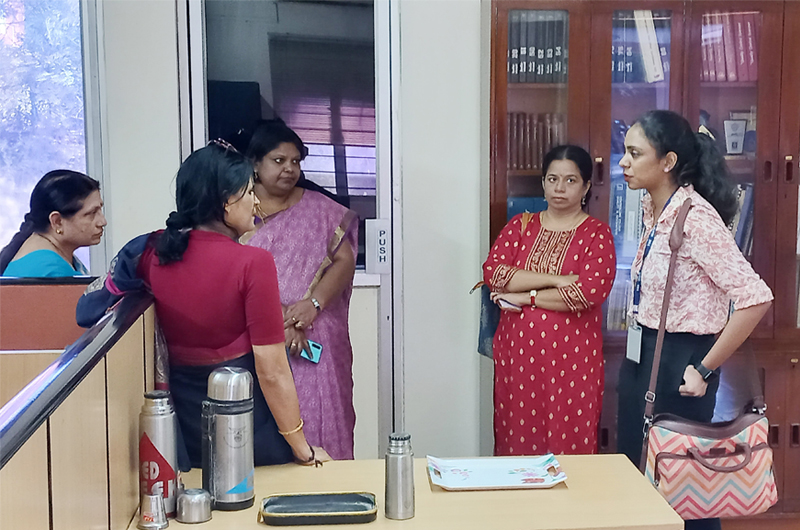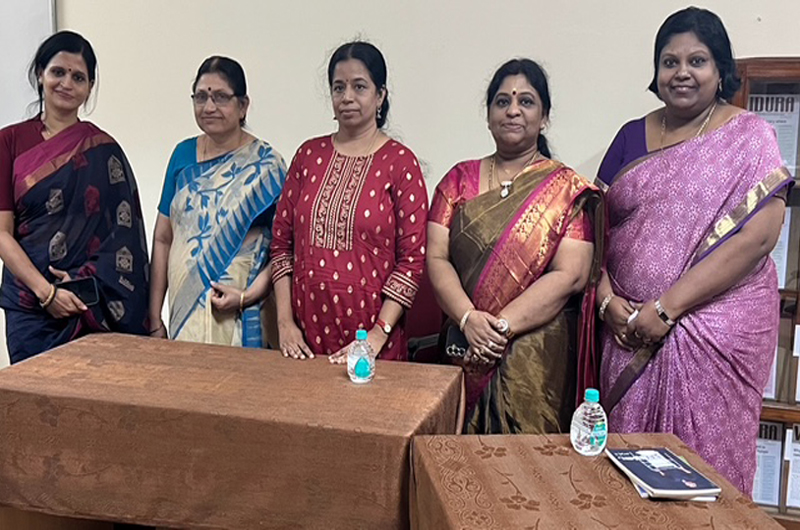There is a lot of difference between a normal child and a special child – a lot of planning is required for a special child, said Meenakshi Devaraj, cultural historian and founder, Nampayanam (an organisation started to promote Indian culture and natural resources), while making initial observations at a programme organised by the Press Institute of India and Nampayanam on 28th February to mark International Women’s Day 2025. Titled Unheard Stories of Special Women, the discussion sought to explore and understand the world of a special child’s mother.
“People are not really aware… there is lack of maturity levels,” Meenakshi pointed out as she gently steered the discussion. She herself had started her journey as a special mother years ago when words such as ‘therapist’ and ‘special child’ would rattle her. Relating their experiences as special mothers, Karpagam Kumanan, Supriya, Radha Nandakumar and Bella John threw some light on a subject that is hardly ever considered or spoken about. Raising a child with disabilities is not easy – far greater efforts and far greater parental involvement are required than looking after a child without any disability. Studies worldwide have shown that parents caring for a child with a disability experience high levels of stress and several health problems, particularly the mothers who are the primary caregivers and who also take on additional roles such as therapist and teacher.
Karpagam said she was not even aware of her state of mind, whether she was shocked, when the doctor mentioned that her son would be like a vegetable. Thanks to strong family support, she felt no guilt. When Bella learnt that her pre-mature child would not be like other children, she thought that physiotherapy would change things. But when the doctor said “everything is in God’s hands,” she realised the child would not be normal. Supriya said special mothers develop intuition and she felt her son would bring about positive change, some difference in her; she also felt that it was a blessing and that he would fight it out. She was prepared to struggle long-term, she said.

her for guidance and support.
Radha’s first child developed convulsions when five months old; there were no motor movements. Even so, it was a happy child and Radha started working as a parent volunteer. Sadly, the child passed away. The second child developed speech regression when about 5-7 months old. “It takes so many years to accept we have a special child. Why me, we ask. Then we cry, we have guilt – so many phases we go through which we have to. It all sinks in after many years of the journey,” she said. Visiting special schools helped Radha understand her situation better. Her second child, too, being special, shattered her and she did not venture out for six months. But somebody told her: If you don’t stand up for your child, nobody will. That steeled her resolve and, today, many mothers come to her for guidance and support.
Bella said she found bonding with special mothers special. “People ask several uncomfortable questions. If you can accept my child, I am your friend,” she said, smiling. Supriya echoed similar thoughts. “There are too many views and hundreds of questions (from the family and others) – if you want to do therapy or not. Perhaps being a special mother makes you sensitive,” she said. All agreed that many people take advantage of their desperation and people need to be sensitised.

When Meenakshi referred to money being crucial to maintain a special child, Bella mentioned her husband supporting her career (she is now headmistress in a school). “There are so many challenges, yet women who can go out should go out and work,” she said. Karpagam recalled how she had learnt driving to take her son for therapy. He studied in a normal school till Class 5; now, having authored a book, he is all for special children attending normal school. His aim is to obtain a PhD – to prove completely wrong what one head of department had told him once: why should a person in a wheelchair do a PhD? Bella said her son is sometimes frustrated at not getting a job. She felt job fairs are not transparent. A friend telling her never to get the idea of marriage into her son’s head made her bristle with rage.
Meenakshi touched on the aspect of children in the US (where she had worked earlier) being far more sensitive to those with special needs. She stressed the importance of knowledge being imparted to society here. “Ignorance pulls us down,” she said, posing the question: how should society change? Supriya said every child should be trained to be human and taught what kindness is, what a helping hand means. “When that is done from home, home therapy is the best,” she was convinced, giving the example of her two daughters looking after their brother. Radha, a former banker, is now a special educator who runs a special school with Supriya. The school teaches the children life skills and takes them outdoors.

The speakers agreed that therapy charges are high and therapy for special children needs regulation. They also agreed that hardly 10 per cent of the fathers take care of their children; 50 per cent of them are either not there or not supporting the mothers at all. The pressure is therefore always on the mothers.
Note: While we celebrate International Women’s Day every year and recognise and appreciate the exceptional strides being made by women in India in various fields, the challenges mothers with special children face on a daily basis is generally ignored or overlooked. Not only do they have to learn about the disability and research, locate and access effective treatments and resources for their children, they also have to cope with the emotional and physical demands of caring for an individual with a disability – getting appointments with medical providers and therapists, advocating for appropriate school interventions, paying for the many treatments and interventions not covered by health insurance or the school system, etc. The objective of having the discussion was to raise awareness, especially among journalists, about a subject that is hardly written or spoken about.



 from Webdoux
from Webdoux